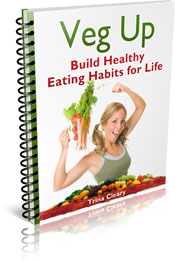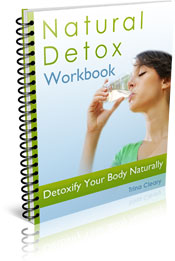|
Protein In FoodsAll You Need To Know About Vegetarian Protein
Vegetarians can find more than enough protein in foods. Learn how to balance complementary proteins and utilise complete protein superfoods in order to meet your daily needs. There are many excellent sources of vegetarian protein. Once you know what they are you can be sure to include them in your diet regularly. Why Do We Need Protein In Foods?To keep it simple, without adequate protein our bodies absolutely cannot function properly. Many people know that protein is necessary to help maintain and rebuild muscle, but protein in foods is also used to produce important hormones and enzymes in our body. All of the body’s nerves, tissues and bones are made up of proteins. Protein also helps us to produce antibodies which can fight off bacteria, viruses, and toxins.Every part of our body is constantly renewing itself. It may seem strange to think about, but the cells of our stomach lining are replaced every five days, and we get an entirely new skeleton every three weeks! Six months from now, you will have a liver composed of fresh, new cells, which will have replaced the ones you currently have today. Almost every single cell in your body is replaced after a certain amount of time. Proteins contain the amino acids necessary to support the rebuilding and restructuring of our cells. Daily Protein RequirementsWe sometimes get confusing message about how much protein our bodies need. You may hear many different numbers. This is partly because the amount of protein necessary to keep our bodies functioning optimally varies. Protein requirements depend on whether we are male or female, young or old, pregnant or nursing, a serious athlete, or have kidney disorders.A general rule of thumb would be that an infant requires about 10 grams of protein a day, teenage girls need 46 grams and boys slightly more at 52 grams, and an adult woman requires about 46 grams and an adult male approximately 56 grams a day. Serious athletes will need more to maintain rebuilding and growth of their stressed muscles, and pregnant and nursing woman also can require an additional 20 grams to support the changes going on in their body. More protein is not necessarily better, and in fact an excess of protein can tax your kidneys (making protein consumption very important to watch for people with kidney disorders). Too much protein can also acidify your blood, cause hypertension, and can increase your risk of osteoporosis. What Are Essential and Non-Essential Amino Acids?Not all proteins are equal. Protein is actually made up of amino acids, which are known as the building blocks of protein. There are 22 different amino acids, divided up between those that are considered “essential” and those that are considered “non-essential”.Essential ones are not any more or less important than the non-essential ones. The term ‘essential’ just means that the body cannot make them on its own, so they need to be consumed through diet. The body, given the right conditions, can synthesise the non-essential ones on its own. It is generally thought that there are 10 essential amino acids; phenylalanine, valine, threonine, tryptophan, isoleucine, methionine, histidine, leucine, lysine, and arginine. As we age, we gain the ability to produce arginine, and at that point it technically loses its "essential" status. Complete Proteins and Complimentary ProteinsComplete proteins are ones that contain ample amounts of all of the essential amino acids. But our body can also piece together two or more incomplete proteins like a puzzle to make one complete protein chain.For example, brown rice contains certain amino acids, but not others. Beans contain the ones that brown rice lacks. So by making a meal that combines rice and beans, you are still able to get a complete protein in the end. Even if you consume one of those proteins at lunch and the other at dinner, your body will have the reserves on hand to put the two together. Many cultures around the world wisely know how to combine proteins for a more balanced meal. Think of corn tortillas and rice, or of rice and beans which are staples in many Latin countries. Asian cultures often mix tofu or other soy with rice. Many Asian or African cultures know to combine peanuts with grains or dried peas to make a complete protein. The trick to making sure that you are eating enough complementary proteins is to consume small amounts from diverse protein sources. This gives your body the components, or puzzle pieces, it will need to form complete protein chains. Examples of combining complementary vegetarian proteins are:
Vegetarian Foods with ProteinFor further information, please see this article for a list of the best vegetarian foods with protein.Articles Related to Protein in Foods:
Back to Become Vegetarian from Protein In Foods – All You Need To Know About Vegetarian Protein
|
Are you as healthy as you can be?
Take action to lift your energy and vitality levels beyond recognition.
Focus on
building healthy eating habits for just one month with
Veg Up and you’ll enjoy the effects for years. You will amaze yourself when you see how much more you can achieve.
More Growing Raw
Newsletter
Be sure to subscribe to "More Growing Raw" newsletter to receive monthly healthy eating tips, Growing Raw news and updates.
Most Popular Articles
- Green Smoothie Health
- Raw Food Health Levels
- Growing Vegetables in Containers
- Healthy Eating Plans
- List of Healthy Food to Always Eat Organic
- Growing a Vegetable Garden in a Polytunnel
- All Natural Detox Diet
Does your body need a fresh start?
Brighten up with all natural detox routines that give your body a cleansing push towards healthier patterns.
Learn how to
detoxify your body naturally. Your body is smart enough to clean itself without expensive detox pills and potions.








